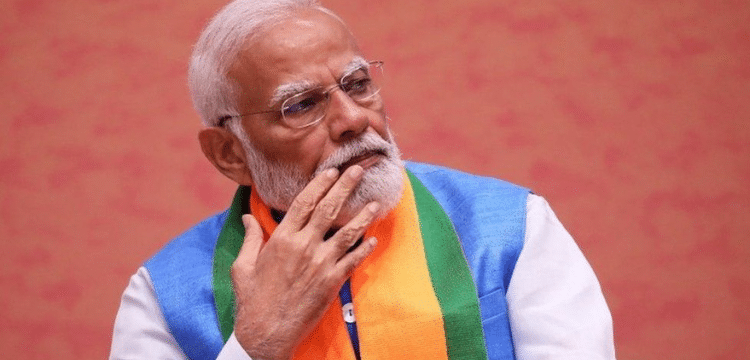As the clock struck 7:30 PM local time, Prime Minister Narendra Modi and the Bharatiya Janata Party (BJP) leadership emerged from party headquarters, met by anxious supporters awaiting Modi’s address. Flanked by Defense Minister Rajnath Singh and Home Minister Amit Shah, Modi’s somber expression spoke volumes. Despite the BJP-led National Democratic Alliance (NDA) securing enough seats to form the government, the mood was far from celebratory.
In 2019, the BJP had secured 303 out of 353 Lok Sabha seats, fueling Modi’s goal of a two-thirds majority in 2024, famously expressed as “Iss bar 400 par.” Exit polls predicted a clear edge for the NDA with estimates between 330 and 390 seats. However, the actual results revealed a different story. The NDA fell short of the 400-seat mark and even a simple majority, leaving the BJP reliant on its allies.
Read more: Modi Leads Early Vote Count In Indian Election 2024; Opposition Gains Too
The Congress party and its allies, led by Rahul Gandhi, made a strong comeback, with potential coalition government prospects. The Janta Dal (JD) and Telugu Desam Party (TDP) emerged as potential kingmakers, pledging support to the BJP, but the political landscape remained fluid.
Questions arose about what went wrong for the BJP. Modi’s inauguration of the Ram Temple in January, aimed at leveraging the Hindu card, backfired. The BJP candidate lost in Ayodhya, indicating that voters rejected communal politics in favor of addressing issues like inflation and joblessness.
The BJP’s failure to retain its 2019 seat position was evident in Uttar Pradesh (UP), which holds significant electoral importance. In 2019, the BJP had swept UP with 64 seats, while Congress won only 1. The 2024 election, however, saw the Samajwadi Party and Congress winning more than half of the seats in this BJP stronghold. Modi’s margin of victory in Varanasi decreased from 500,000 in 2019 to just 150,000.
Despite a narrow margin of victory, Modi made history by becoming the second Indian leader, after Jawaharlal Nehru, to be elected prime minister for a third time. However, without a clear majority, Modi will need to make compromises. Pre-election fears of Modi amending the constitution to declare India a Hindu state are now unfounded. Modi faces a formidable opposition for the first time.
At the BJP headquarters in Delhi, Modi noted an increase in votes in some areas, including the capital, but he is aware that this is not the victory he had hoped for. India’s election results highlight the strength of its democracy.











